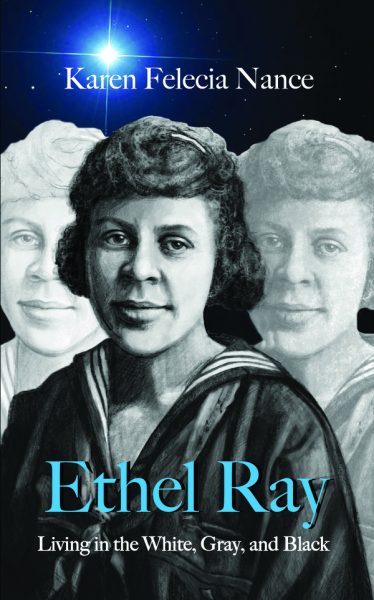Weeks after the presidential election, Hillary Clinton continues to pad her popular vote lead. As the losing side in this contest, I can only see this as an injustice. While the most unqualified man to ever run for and win the office of the presidency now begins to make the transition to power, people argue that the Founding Fathers would see this as an assault on our democracy. But when I look at the original texts of Hamilton and Madison, the primary Federalists who crafted the core of our Democratic Party, I disagree with the premise that they would be unhappy with the results of this election. While I am not pleased by the notion of a Trump presidency, I do find myself grappling with my understanding of and opinions towards the system that elected him. With a dispassionate and unattached view, I want to use this column to argue my belief that the Electoral College was designed to create outcomes similar to this election and ultimately served the purpose of protecting America’s interests in the eyes the Constitution.
Granted, it is important to remember that the Electoral College today is far different than that of yesteryear. Under the older system, Hillary Clinton would now be the Vice President. But beyond the generational differences, I believe there are certain aspects of the Electoral College today that are important to remember. When reading the texts of the Federalist Papers, specifically numbers 10 and 68, there is evidence that in this election, the Electoral College did its job.
In Federalist 10, Alexander Hamilton writes on factions and majorities in the American populous. Hamilton defines factions as “a number of citizens whether amounting of a majority or minority of the whole who are united and actuated by some common impulse of passion, or of interest adverse to the rights of other citizens, or to the permanent and aggregate unrests of the community.” When opponents of the Electoral College say that a popular vote makes every vote equal, they forget the concept of sectionalism also predicted in this document. This phenomenon exists on a political and sociological level as individuals tend to have a proclivity for living around others that are similar racially and politically. One can take, for example, North Minneapolis and the suburb of Edina.
Hamilton feared in a popular vote that non-majoritarian interests, when closely clustered, might overpower the majority. As the policy needs of metropolitan cities across the country have become more and more similar, it is entirely possible for Democratic candidates to build coalitions that play only to these certain groups. Even Tim Ryan, the congressman who attempted to become the new Democratic Minority Leader, acknowledges that the Democratic Party has become a coastal party and needs to reach into middle America. In my view, a benefit of the Electoral College is that it forces candidates to build geographically diverse coalitions. A popular vote ultimately relieves this burden and gives more power to the counties out of touch with needs of rural America. Based on the Hamilton definition of factions as both majority and minority groups, it is clear that even though the Democrats may win the majority of the vote based in this population, Hamilton and the Founders believe that this is a dangerous way to win an election.
This phenomenon is easily displayed in a compelling way mathematically. Over 2,330,000 people voted for Hillary Clinton in Los Angeles County alone in the 2016 election. This county by itself accounts for vote totals equal to or more than that of many states across the midwest. This begs the question of why should the voters in a county, which has very specific policy needs that differ with, for example, Wisconsin, have a greater impact on the election than all the diverse needs of Wisconsin combined? The Electoral College protects the interests of Wisconsin from this faction. Whether we choose to agree with it or not, the United States is founded on the idea of states’ rights and the protection of small and large states in government. If the Founding Fathers were here today, they might be unhappy with the candidate we elected, but they would likely believe in the fundamental mechanism driving Trump’s electoral win.
Before I go down that path of Federalist 68, I again can’t help but acknowledge the irony that Donald Trump is the most unqualified presidential candidate in our history. In Federalist 68, Hamilton argues that the Electoral College creates more qualified candidates. This belief, rooted in the idea of carrying varying messages for different coalitions, has been difficult for me to fully understand. Perhaps I have viewed the Electoral College and my candidates incorrectly. Hamilton argues against a demagogue who creates a coalition of just a few cities. While Hillary Clinton is not a demagogue, her campaign strategy, regardless of intent, only pulled votes from a small number of heavily populated cities. Even if this was not her goal, it is how this election played out as the votes that continue to pour in come from the metropolitan and suburban Democratic strongholds. But to the people of rural America, and even some metropolitan cities, she was not someone who appeared to be interested in representing their issues. In Federalist 68, Hamilton states, “Talents for low intrigue, and the little arts of popularity, may alone suffice to elevate a man to the first honors in a single State; but it will require other talents, and a different kind of merit, to establish him in the esteem and confidence of the whole Union, or of so considerable a portion of it as would be necessary to make him a successful candidate for the distinguished office of president of the United States.” The key phrase here is “confidence of the whole Union.” I believe that this is where I can derive another definition of qualification for the presidency.
Perhaps qualified has multiple definitions and goes beyond one’s resume. How are we to define who is qualified for president when the most unqualified person just won? Maybe the definition set forth by Hamilton is meant to not only include past experience, but also palatability of issues on a national level. If a large faction of the country found Secretary Clinton’s ideas to not be representative of their policy needs, then maybe the Electoral College was correct in electing Trump.
While I find it incredibly difficult to endorse many of Donald Trump’s policy positions, his legitimacy as president is sealed. Beyond claims of disenfranchisement through disproportionate electoral vote counts, I ultimately look at the protections and rights given to states in our constitution. Even the Federalists of the time period recognized the role of the rights of states. Regardless of my opinion of the factions and their size, these groups are given representation for a reason and the best way to protect all interests in the United States is to maintain the Electoral College.
















Larry Bailey • Dec 26, 2022 at 5:06 pm
James Madison authored the Fed 10, not Hamilton. As it has much to do with factions it has less to do with the Electoral College. The Federalist Papers 68 (The Mode of Electing the President) authored by Alexander Hamilton addresses that issue. The electors were not to be accountable to those already holding office, “No senator, representative, or other person holding a place of trust or profit under the United States, can be of the numbers of the electors.” Now consider how those acting as electors are appointed. Then consider that electors are supposed to vote for the party who appoints them. Electors are nothing more than strawmen told by their appointers who to cast their votes for. They are supposed to be a failsafe to protect us from a foreign agent or other unqualified person from becoming president.
Olaf • May 9, 2022 at 3:15 pm
What about the needs and the will of urban voters? Also, a system that elected a President that has been so damaging to America surely needs updating.
Richard Chapman • Sep 12, 2019 at 4:37 am
There are also so many video uploading websites, and these also provide facility for distribution their video tutorials, except I think YouTube is the most excellent.
Eric Romein • Apr 21, 2022 at 9:29 pm
Good article but Hamilton didn’t write Federalist 10, James Madison did.
Luke Rampling • Sep 10, 2019 at 9:56 pm
fantastic submit, very informative. I ponder why the other specialists of this sector don’t understand this. You should continue your writing. I am sure, you’ve a huge readers’ base already!
Matt Greene • Sep 8, 2019 at 5:30 am
I precisely wanted to say thanks all over again. I’m not certain the things that I might have created without the type of ideas shared by you regarding that concern. It had become a traumatic concern in my view, nevertheless viewing the very skilled technique you managed that made me to leap over contentment. I will be thankful for this guidance and thus expect you know what a powerful job you were carrying out teaching the rest with the aid of your web site. More than likely you’ve never come across any of us.
luna • Apr 5, 2019 at 2:40 am
Merely wanna admit that this is very beneficial , Thanks for taking your time to write this.